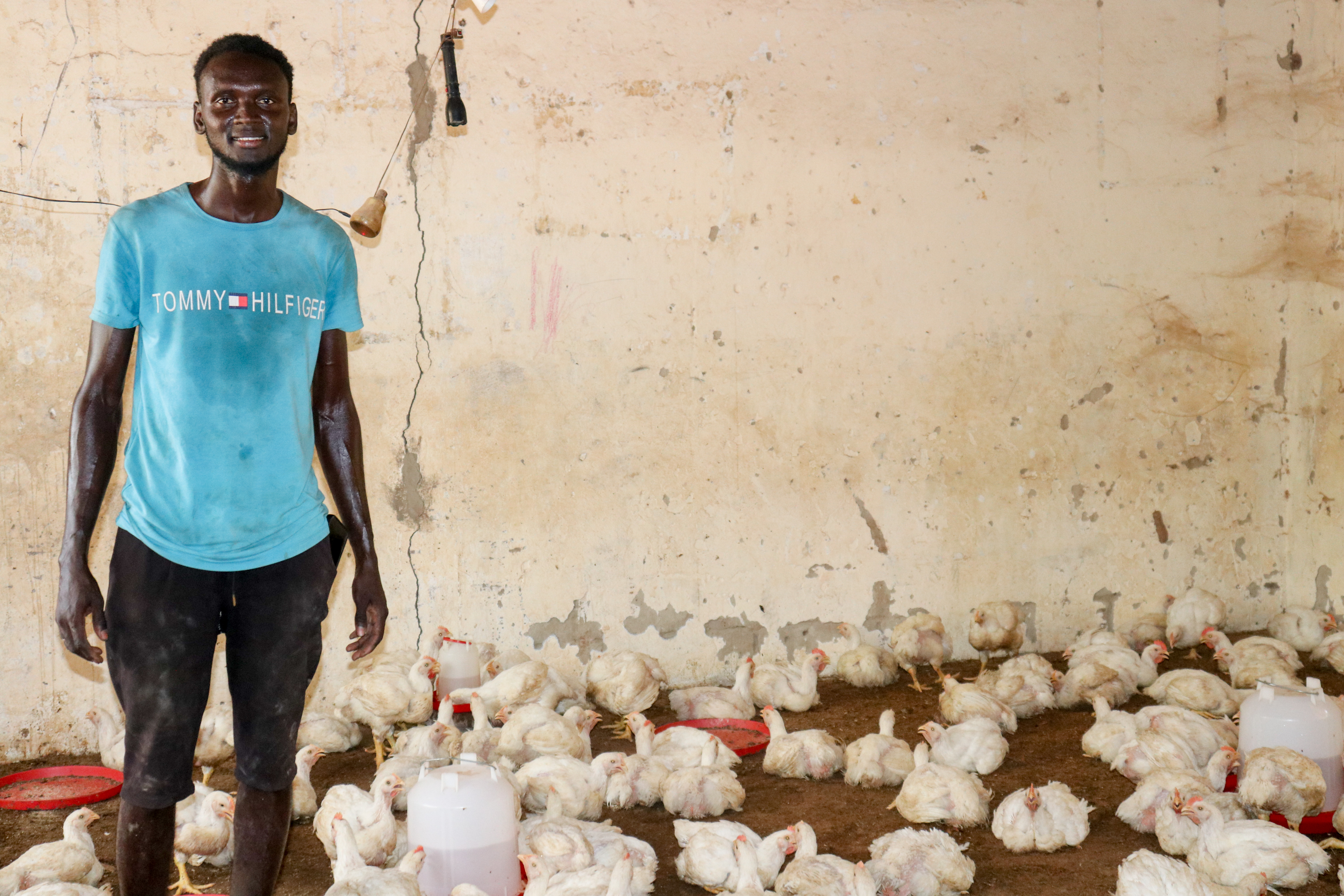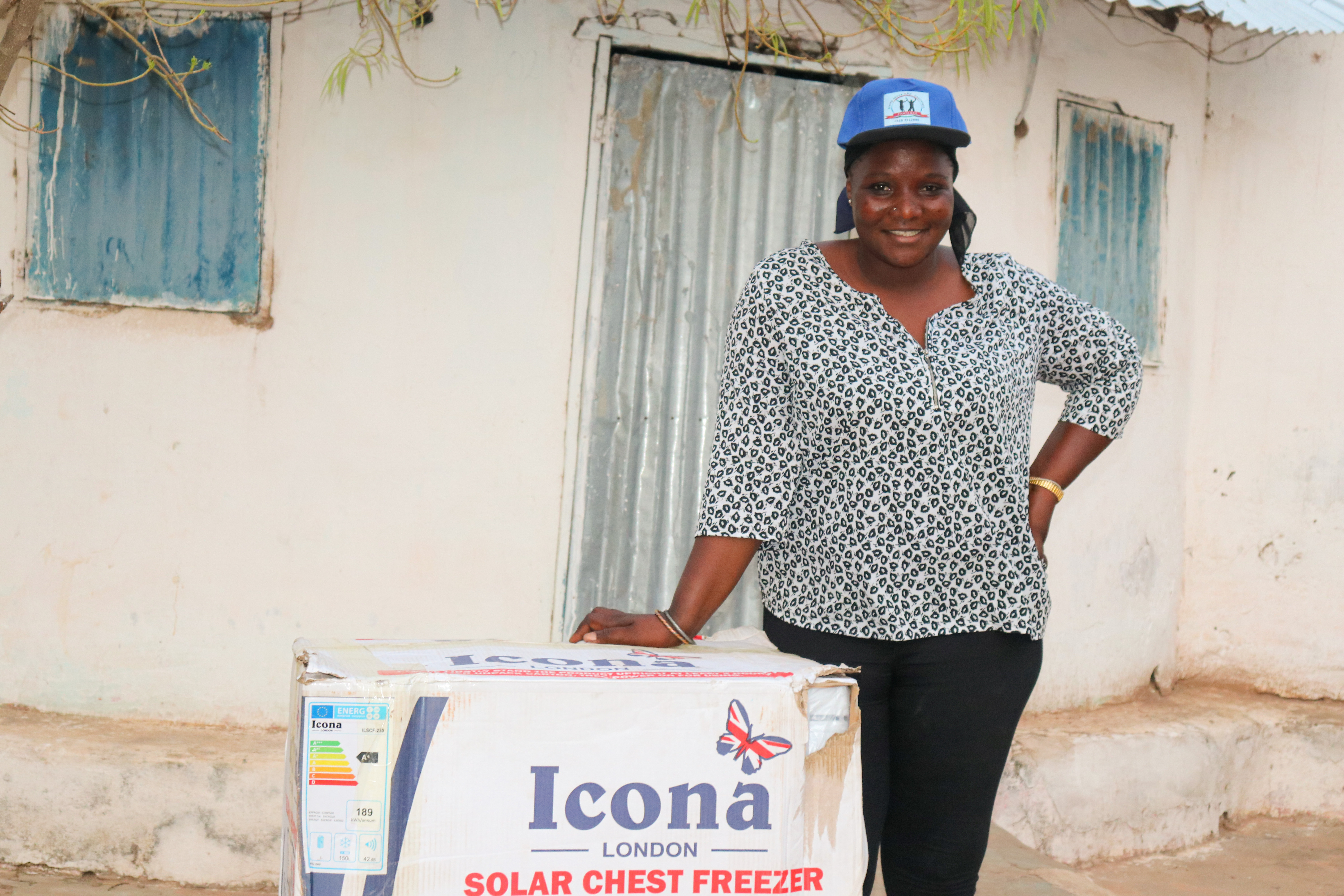Agriculture remains the leading employer of youth and women in The Gambia, especially in rural areas. The sector, however, is faced with a myriad of challenges. The climate crisis, especially erratic rainfall continues to disrupt the livelihood of smallholder rural farmers. This has reduced crop yield and by extension, the income of rural farmers.
Accordingly, the coronavirus pandemic which hit the world in 2019, through adopted preventive measures to curb the spread of the virus has affected the production capacities of farmers leading to a reduction in income. These challenges increase poverty and subsequently unemployment.
According to a survey conducted by The Gambia Bureau of Statistics in 2018, the level of unemployment rate in rural areas of The Gambia stands at 76.6% compared to 23.4% in the urban areas. Communities in these areas are more prone to economic shocks and the consequences can be devastating. Building the resilience of these communities through diversification of income is critical in enhancing sustainable development.
It is in this regard that, the International Trade Centre (ITC) and the United Nations Development Programme (UNDP) partnered to diversify the livelihood of these communities to reduce poverty and unemployment. The support includes providing training programs and start-up materials to rural young people, women, and community groups to start a profitable venture. It seeks to make communities resilient and support them to recover from the impact of the coronavirus pandemic.
Muctarr Jallow, 26, a beneficiary told us a week after receiving his two-hundred broilers. “I struggled to make ends meet. As the breadwinner, I had to work long hours to provide food for my family. With this support, I am hopeful that I will be able to earn more income.”
 | Muctarr Jallow
| Muctarr Jallow
Muctarr is a young poultry farmer with an ambition to grow his business into a big poultry processing plant in the future. He aims to supply his region and beyond with healthy chickens and in the process create employment for other young people.
For Muctarr, the support is a giant leap towards achieving his goals of becoming a successful poultry farmer in The Gambia. Looking passionately at his broilers with a broad smile, Muctarr said: “my birds are now fit to be sold. I will soon be making my first sale.”
Through the program, beneficiaries underwent an intensive entrepreneurship training before receiving start-up support. Forty-one youth and women from the target communities were trained in entrepreneurship, digital marketing skills and on-the-job poultry training. Twenty-Two arts and craft trainers also completed a five-day Training of Trainers in Painting and Tie and Dye to improve the overall quality and design of the products produced by local artists in the painting, tie and dye subsectors.
Like Muctarr Jallow, Bakoto Jobarteh, a resident of Boraba, Central River Region, benefited from the support. Standing beside her brand-new refrigerator, Bakoto Jobarteh, with a big grin on her face said: “I am so happy to receive a brand-new refrigerator. The support will increase efficiency in my business and help boost my income.”
 | Bakoto Jobarteh
| Bakoto Jobarteh
Bakoto, 23, sells popsicles in the community.
The program also handed over three tricycles to three communities to support market access for women's vegetable growers and in Manduar the capacities of two boreholes were enhanced to supply adequate water to the women's community garden.
Furthermore, the communities of Jurunku and Alkali Kunda were supported with food processing equipment and machinery to improve productivity and value addition and a borehole to support access to clean drinking water, respectively. In addition, a borehole was constructed in Alkali Kunda to support access to clean drinking water for over two-thousand residents.
Enjoyed this post by Bubacarr? Share it with others.
View count: 3528